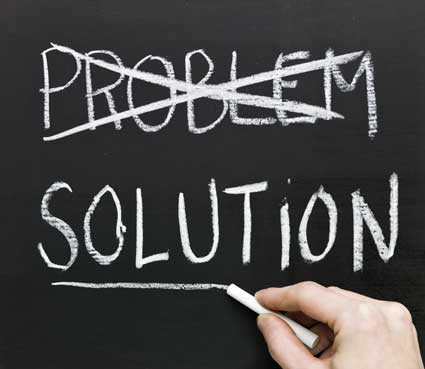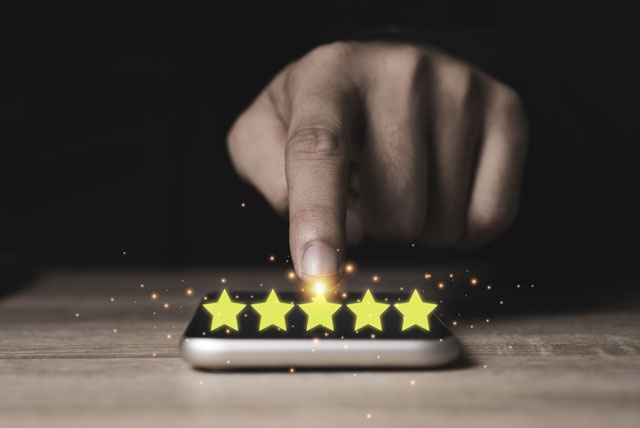Cell phones and voice communications have always been, and will continue to be, an integral part of our lives. Cell phones allow us a speed of communication, and the ability to convey sentiments, that are difficult to explain in an email. Cell phone communication is the best form of back and forth communication. It allows each user to give and receive information, and ask questions in between for clarity. How many times have you had a cell call where the user said, "I'll sum this up in an email?" Basically, you can cover 10 times the information in a five-minute phone call that you could in the equivalent time in an e-mail. E-mail must be sent back and forth for the reply and interaction. Cell phones are even more important in the current business world, because of their ability to let us send e-mails, talk, and watch a video -- all at the same time. The amount of technology that fits into your pocket is phenomenal.
Cell phone communication must be used effectively to best serve you in your professional life, by increasing your efficiency and productivity. Let us look at good cell phone tips to help you maximize your use of the cell phone -- where it works for you, not the other way around. Cell phones provide many known tangible benefits for communication.
Let's discuss some cell phone characteristics you want to manage, so you are not classified as one of those annoying cell phone users.
-
Identify yourself, and always offer a friendly greeting in the tone and manner you want to represent you and your company.
-
Value your call recipient's time through brevity.
-
Speak in a normal phone conversation voice.
-
Beware of confidential conversations within hearing range of others.
-
Never take a call if you are speaking to a person directly in front of you, without excusing yourself to take the call.
-
Always use a hands-free set when driving an automobile.
-
Use an appropriate ring tone for your image, or keep it on vibrate.
-
Turn off your phone, or place on vibrate or silence mode before entering a concert, theater, or any other place where people gather to listen to paid entertainment. Do the same for meetings.
-
Keep cell phones out of sight during business meetings, and fight the urge to scroll through e-mails or play games.
-
Screening calls should be used in moderation. Customers and clients question the validity of you missing their call, if you call right back to them after they have called your cell phone.
-
Never intentionally (pretend to) to drop a call when a conversation is not going as planned, or you want to end the call. Simply let the individual know you must end the call to attend to another matter.
-
Try to avoid phone tag to the extent possible. It occasionally occurs, but if it routinely occurs, customers and clients may feel you are unreachable.
-
Avoid lengthy voice mail messages. Be straight to the point.
-
Cell phones do make our lives easier when we need some down time. Examples include being able to text when you do not feel like talking to someone, and letting a call we do not want to take go to voice mail.
-
Avoid being on the phone when you are being served, or in any type of checkout line.
Cell phone etiquette has several components. What you do with your phone, and how it is perceived includes:
-
Actual phone use when using your cell phone for calls.
-
Use of Apps on the phone for productivity and networking.
-
Perception of others, which means how do you "look" using your phone
A cellular phone's primary function is to operate as a calling device. There are specific rules for cell phone etiquette that you should use when making calls, and when interacting with customers and clients. The secondary function for new smart cell phones is to provide a wealth of useful tools and applications to improve our lives. These apps provide convenience and other benefits. Your job as a business professional is to ensure that you managing your phone well. This includes applying proper cell phone etiquette. Cell phone etiquette is using proper manners and courtesy while conducting business with your clients and customers.
Making your phone a high functioning tool for productivity
Cell phone etiquette is a combination of knowing how to appropriately use a phone for business calls, and how to appropriately use it for productivity purposes.
Cell Phone Calls
-
Use professional and grammatically correct language on all calls.
Interested in learning more? Why not take an online Business Etiquette course?
-
Practice privacy in public, and be aware of your surroundings. Use discretion when discussing business in a public place.
-
Use your phone in an area with no background noise.
-
Speak clearly.
-
Avoid talking about personal problems in a public place.
-
Watch your language, especially when others can overhear you.
-
Stand while talking to project your voice as strong and energetic.
-
Smile while talking; it helps you project warmth into your voice.
-
If you are placing a call, make sure you ask if it is a convenient time for you to call.
-
Have your telephone script planned out to be certain you cover key points. Think -- why am I calling?
-
Whether you are a caller or the recipient of a call, focus on the conversation. Do not multitask (i.e surf the Internet or check e-mail). When using your phone, focus on the call at hand; never multitask with an app (although your phone has the capability); this is considered rude in business etiquette.
-
Unless you recognize a phone number, let your answering service or voice mail system answer the call to avoid unwanted sales calls or wrong numbers.
-
If you need to end a call that won't end, it can be difficult task. You don't want to be rude, but you also need the conversation to come to a close. Politely summarize the point of the call and thank the person for calling.
-
Minimize your use of the speaker phone in public. It is bad cell phone etiquette and provides little privacy for calls. Some users make entire calls on their speaker phone; don't be one of them.
-
Never wear your Bluetooth headset around the office or all the time. There is a time and a place for Bluetooth.
-
Cell phone usage in the restroom is a no-no. No talking and no using apps. Imagine your client who hears toilets flushing in the background. It provides some insight on your quality.
Productivity Apps
Take advantage of technology applications; they are there to improve your productivity and efficiency. There are thousands of applications for smart phones. You should carefully select the ones that will benefit your business and lifestyle. There are many calendars, reminders, collaboration platforms, networking platforms, tools, and data applications that make work much simpler. On the other hand, some cell phone users become unnecessarily consumed with their phones, to the point it becomes a problem or a hindrance to their job. Here are some general guidelines:
-
Using apps is not appropriate during business meetings.
-
Personal interaction is more valuable than clicking through apps. Never avoid people who are with you or speaking to you.
-
Never appear to be an app junkie. This means do not use your smartphone apps while driving or walking.
-
Choose only a few apps that provide you the most value by improving your communication, performance, or efficiency.
-
Always portray manners and etiquette when using apps (perception and business professionalism). Stop using your phone if someone approaches you or speaks to you. Focus on them.
There are many articles in newspapers and magazines regarding the proper and improper use of cell phones. Cell phones of today are used in many different applications than in the past, compared to conventional wired telephones. The advent of smartphones has forged a new era of technology. Remember though, nothing about a cell phone excuses the user from good telephone manners. The problem is, many people are self-absorbed and unconsciously forget about the people around them.
We have already talked about cell phone call etiquette. Let's provide some more in-depth information on cell phone etiquette related to apps and use in public. A cell phone app is any cell phone application installed by phone users. These smartphone apps perform functions other than making a phone call. The word "app" most commonly refers to software downloaded onto cell phones. Common apps include weather, social networking, maps and navigation, music and news. Apps grow in increasing complexity by using a cell phone's built-in features, like microphone, GPS, or motion sensors, to perform a new function. Many apps now use stand-alone software and may connect to other devices to integrate capabilities. Search the app store on your phone for apps that will improve your business capabilities.
-
Be aware of your professional business image and how it looks when you are walking down the street engaged in a discussion with someone, while looking down, using an app.
-
Determine if a call, text, or email can wait. It probably can, as society has functioned for many years without e-mail, apps, or texts.
-
Most states require a hands-free set and have laws that require hands-free earphones while driving. Many more have laws against texting while driving, but it is still very common.
-
Safety should be your first concern; when using your cell phone, monitor your surroundings.
-
Be cautious of app security. Some of the applications available have very limited security functions for your personal information.
-
Resist technology overload by subduing the need to immediately check for texts, emails, or social media feed every time you hear a signal of feel a vibration. It actually detracts from time you could be focusing on your work or your business.
Texting etiquette
Let's briefly discuss proper texting etiquette. Texting is very useful for sending messages, especially when you do not have time for a conversation. Text messaging is becoming a more popular way to communicate, because it is simple, efficient, and effective. What is considered acceptable when texting friends. is very different than what is acceptable when texting business contacts.
-
Don't send a text, unless it's urgent.
-
Don't text bad news.
-
Private information can be forwarded, so do not text it.
-
Texting while dining is rude.
-
Spell all words to eliminate confusion.
-
Texting does not require a response.
-
When texting, think about the message you are sending.
-
Keep personal matters out of texts.
-
Don't reply just for the sake of texting.
-
Don't get upset if you don't get a reply.
-
Remember that texts are informal.
-
Don't let texting ruin your grammar skills.
-
If it needs immediate attention, make a phone call.
-
Don't let texting interrupt face-to-face relationships.
-
Don't send a text message if you can send an e-mail.
E-mail by phone
The screen size and power of cell phones today allow for them to be effective in sending e-mail messages. E-mail etiquette is similar to texting etiquette. Although it is on your phone, you should use the same techniques use on a desktop computer. Remember business professional etiquette in all your communications. Be cautious when sending e-mails by cell phone. Messages sent by cell phone cannot always be recalled so author your message cautiously.
Summary reminders and takeaways
Cell phones and voice communications are an integral part of our lives. Cell phone communication must be used effectively to best serve you in your professional life. Cell phones have great potential to increase your efficiency and productivity. Cell phone etiquette has several components. 1) Actual phone use when using your cell phone for calls. 2) Use of apps on your cell phone for productivity and networking. 3) The perception of others when you are using your phone for business. The business professional will manage their cell phone effectively by managing all three of these components of successful cell phone management.
A cell phone is an indispensable tool for the business professional. You should take advantage of technology applications; they are there to improve your business lifestyle including collaboration platforms, networking platforms, and productivity tools.

































